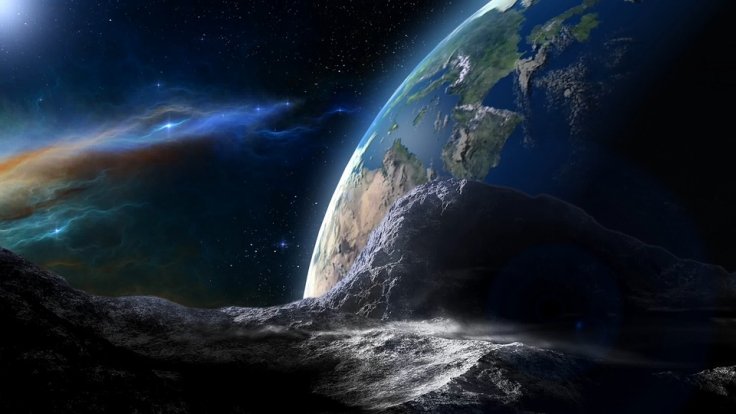A new study carried out by researchers at Durham University has suggested that earth may have lost up to 60 percent of its atmosphere following a cosmic collision that resulted in the formation of the moon, the blue planet's only natural satellite. Researchers made this conclusion after analyzing 300 computer simulations that showed the impacts of collisions on rocky planets with thin atmospheres.
Impact of Cosmic Collision
The puzzle about how the Moon formed and the other consequences of a giant collision with the early Earth is something that scientists are working hard to unravel. Several previous studies had suggested that the moon became a natural satellite, after a Mars-sized planet collided with the earth.
During the study, researchers looked at the impact of a cosmic collision on a planet's atmosphere and concluded that the earth could have lost anywhere between 10 to 60 percent of the atmosphere after the violent event that resulted in the formation of the moon.
"We ran hundreds of different scenarios for many different colliding planets, showing the varying impacts and effects on a planet's atmosphere depending upon a number of factors such as the angle, speed of impact or the sizes of the planets," said Dr Jacob Kegerreis, of the Institute for Computational Cosmology at Durham University.

Scientists who took part in the study revealed that more studies based on this finding could help to know more about the event that resulted in the formation of the moon, and could also help to gain deep knowledge about earth's closest cosmic neighbor.
Will Earth Lose its Atmosphere Again?
There are thousands of near-earth objects in the vicinity of the earth, and most of them are relatively small and they do not pose any threats to the existence of life on the earth. However, considering the vastness of the universe, space experts are not ruling out the possibility of a violent cosmic collision that could happen in the future.
Top space expert Dr Iain McDonald had previously predicted that earth will collide with a giant asteroid in the future, as cosmic collisions are not confined to the past. If the collision happens with another Mars-sized planet in the future, it could surely result in the loss of the earth's atmosphere, but humans will not be able to study more about it, as it will wipe out life from the earth.









